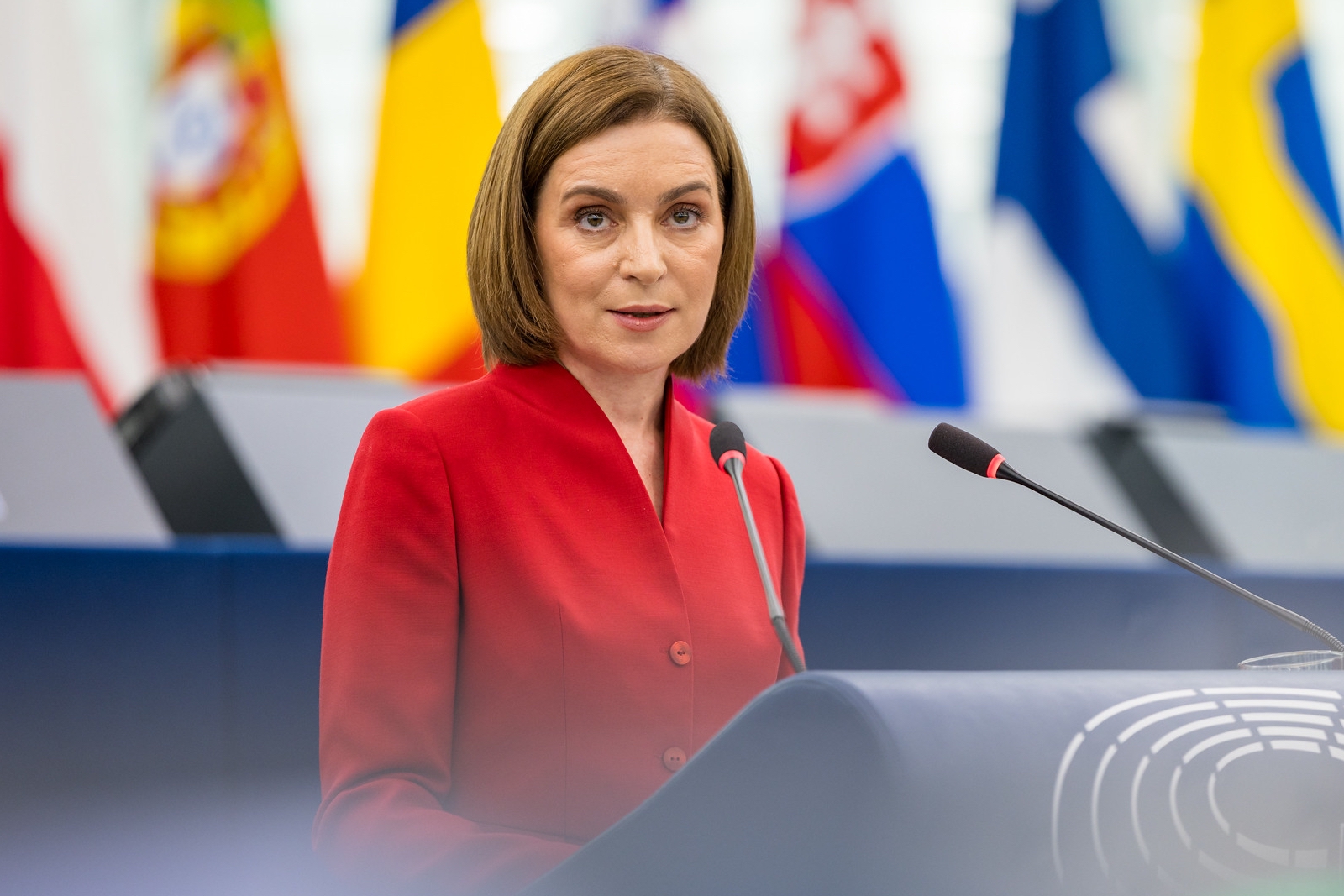
The Borderland Ballot Putin Doesn’t Want to Lose
Moldovans head to the polls next week in parliamentary elections that will shape not only their country’s trajectory but also Europe’s eastern frontier. What might look like a domestic contest is, in reality, the latest round in a grinding tug-of-war between Brussels and Moscow—one that has intensified since Russia’s full-scale invasion of Ukraine. For the European Union, Moldova is no longer a distant neighbor; it is a frontline state whose stability and democratic progress are inseparable from Europe’s own security.
On one side stands the pro-European governing party, seeking a new majority to entrench reforms launched in 2021. Those reforms—strengthening the rule of law, clearing out entrenched corruption, and aligning the economy with EU norms—are designed to put Moldova on a credible path toward accession. Maia Sandu, the pro-EU president re-elected in 2024, has been relentless in arguing the case. Moldovans, she says, deserve to “live as Europeans, with dignity and security.”
Arrayed against this project are parties friendly to Moscow, determined to halt or reverse the European turn. Their message is familiar: promises of cheap energy, stability under Russia’s wing, and a nostalgia for a past in which Moldova had little say over its own destiny.
As one seasoned EU insider puts it, behind the slogans lies a bid to restore “dependence—economic, political, and cultural—on a Kremlin whose interests rarely align with the aspirations of ordinary Moldovans.” The same Brussels-based observer warns that “Moscow, bruised by its defeat in last year’s presidential race, is throwing everything into this election—alleged disinformation campaigns, hybrid operations, and smear tactics—targeting the very reforms that have brought Moldova closer to Europe.” The contest is not just about seats; it’s about Moldova’s place in the world.
Anyone walking through Chișinău can sense a country mid-pivot. The capital feels increasingly European: packed cafés, modern restaurants, and young professionals slipping between Romanian, English, and other EU languages. Beyond the city, rural guesthouses and eco-tourism projects signal an economy more open to visitors than it was under earlier, more Russia-leaning governments—when Moldova was often seen as unsafe and unwelcoming.
The change is more than cosmetic. It reflects a hard-won resilience. Moldovans have weathered energy pressure and disinformation storms yet remain focused on building a stable, peaceful, European future. A referendum last year confirmed that a majority favors EU membership, a clear sign that the old bargain—“cheap gas for loyalty”—no longer persuades.
Brussels has a great deal riding on the outcome. A Moldova anchored to the EU trajectory would demonstrate that democratic reform is still possible on the Union’s borders. A Moldova drifting back toward Moscow would advertise vulnerability at Europe’s doorstep. Ultimately, however, the decision belongs to Moldovans. On September 28, voters hold what many see as a historic responsibility: either to confirm the country’s European course and accelerate the push for EU membership by 2030, or to risk sliding back into dependency and uncertainty. Moldova may be small, but its choice will reverberate far beyond Chișinău.
Last month, senior political leaders from France, Germany, and Poland traveled to Moldova to show support for its EU bid and to warn of Russia’s “relentless” efforts to undermine it. The visit coincided with the 34th anniversary of Moldova’s independence from Moscow. Sandu—Harvard-educated and a former World Bank official—framed membership not as a distant ideal but as a practical security guarantee: EU accession, she argues, “is not a distant dream, but a project we are working on.”
Danuta Hübner, a Polish center-right politician and former EU commissioner who has tracked Moldova for years, puts the stakes starkly. “I was there during presidential elections. I can imagine that now Moscow is targeting them with more money ramping up efforts. Two victories a year ago (the referendum and presidential vote) moved Moldovans forward on their path to Europe and democracy,” she said. “People of Moldova need to prevail on 28th. The recent visit of European leaders once more confirmed that the door to Europe is opened and we will spare no effort to help Moldova to further progress in their European effort and commitment.”
Denis MacShane, a former Europe minister in the United Kingdom under Tony Blair, offered a similar warning: “Putin has thrown everything into Moldovan politics to turn the small young independent nation away from its European home and accept status as a Kremlin vassal state. The election on September 28 will be an important signal that the Putin idea of Europe is rejected by Moldovans.”
A former Soviet republic for 51 years, Moldova sits between Ukraine and Romania and remains one of Europe’s poorest countries, with a population of 2.5 million and a diaspora of roughly 1.2 million. Sandu’s main rival in last year’s presidential race, Alexandr Stoianoglo, backed by the pro-Russian Party of Socialists, had argued for closer ties with Moscow. After Sandu’s victory, European Commission President Ursula von der Leyen congratulated her—“it takes a rare kind of strength to overcome the challenges you’ve faced in this election”—and pledged to continue working toward “a European future for Moldova and its people.”
Sandu’s party, PAS, hopes next week’s vote for the 101-seat parliament delivers a new mandate to push ahead with reforms, though it faces a serious challenge from the Patriotic Bloc, a new constellation of pro-Russian opposition parties. For PAS, EU accession by 2030 is not a slogan but a governing program; for its opponents, reinvigorated links with Moscow promise quick relief on energy and a return to “stability.” As with last year’s presidential race, the parliamentary vote is widely and rightly seen as a choice between Europe and Russia. The question before voters is whether Moldova consolidates its European turn—or allows the gravitational pull of the Kremlin to draw it back into a familiar orbit.
